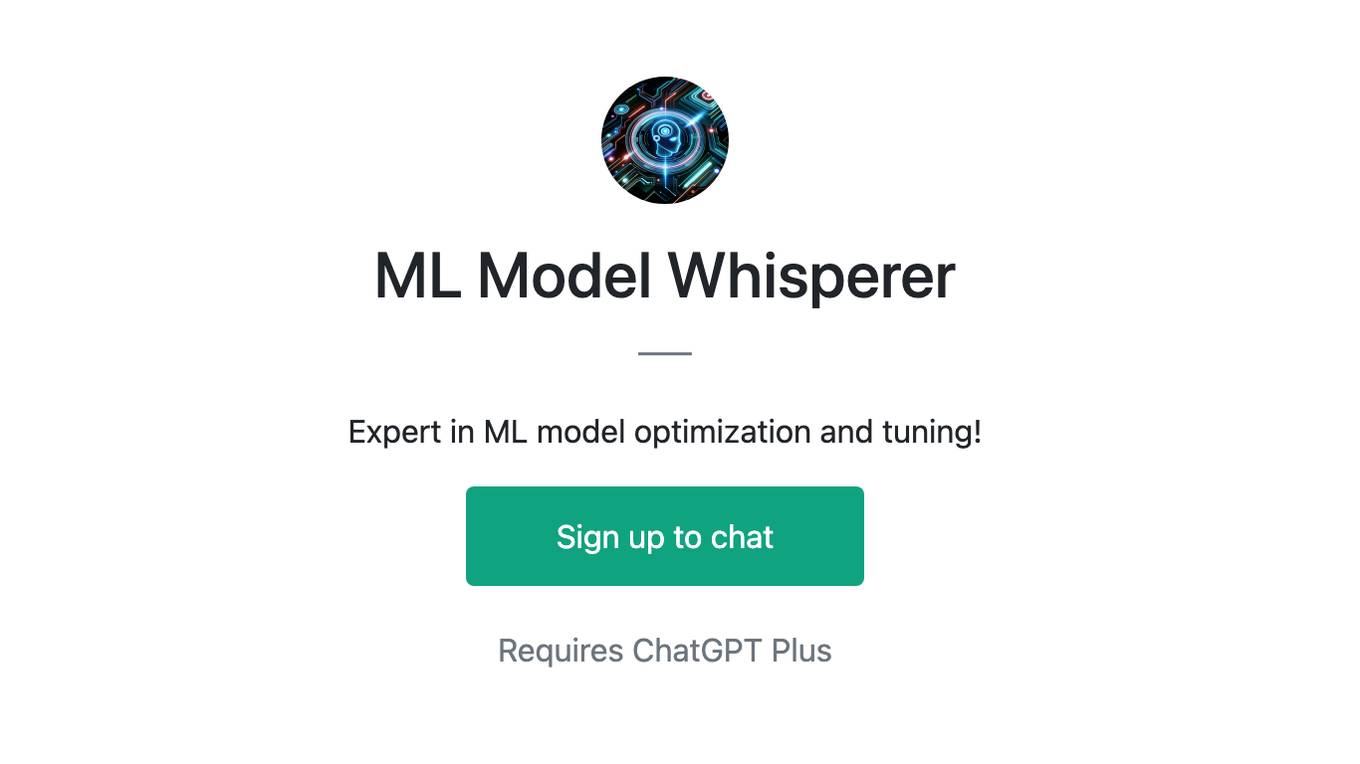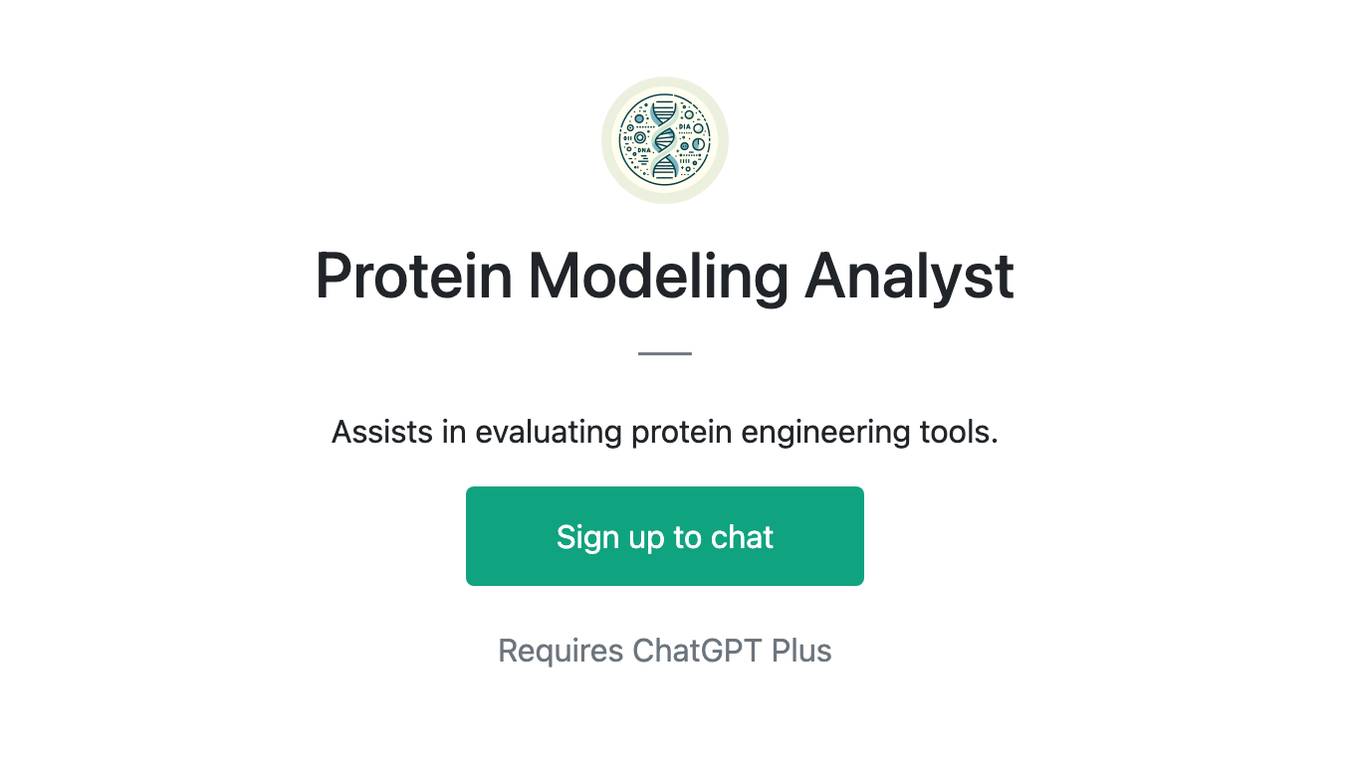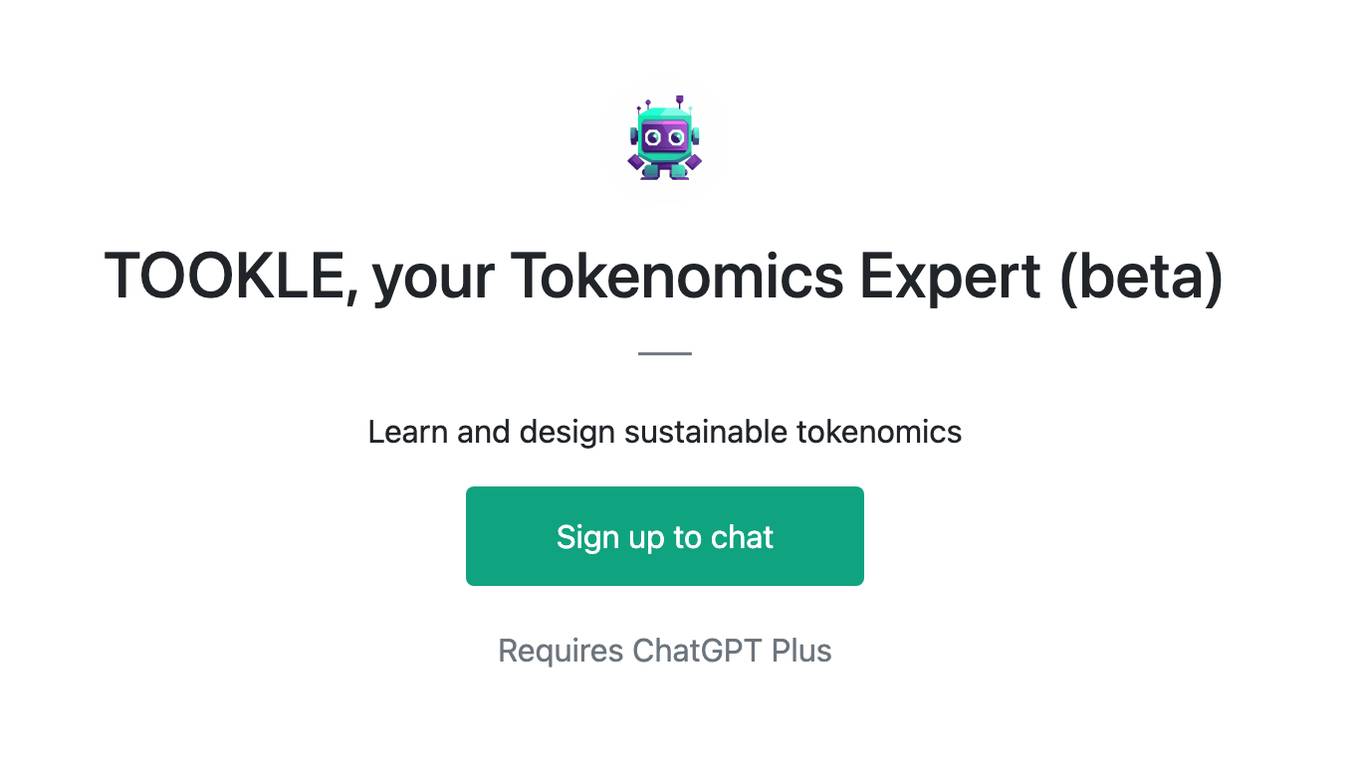Best AI tools for< Evaluate Model Explanations >
20 - AI tool Sites
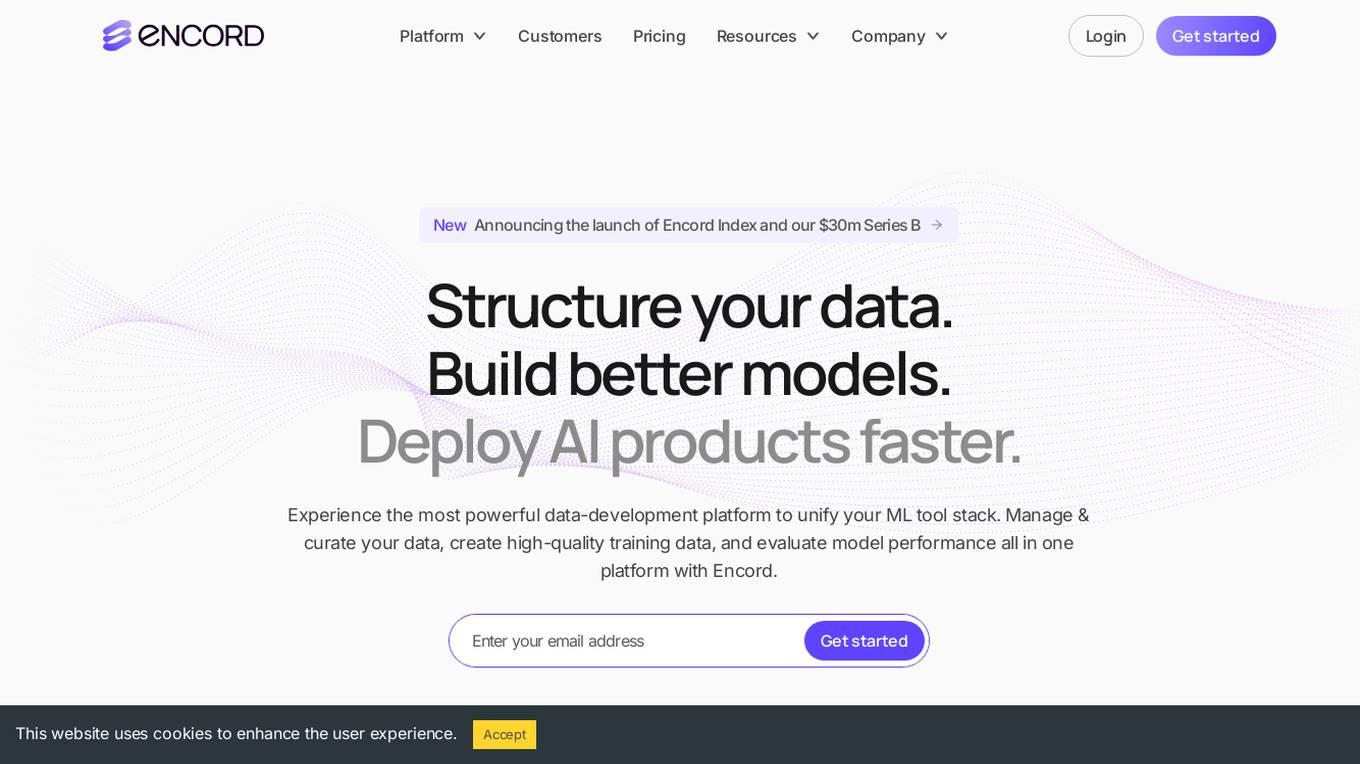
Encord
Encord is a leading data development platform designed for computer vision and multimodal AI teams. It offers a comprehensive suite of tools to manage, clean, and curate data, streamline labeling and workflow management, and evaluate AI model performance. With features like data indexing, annotation, and active model evaluation, Encord empowers users to accelerate their AI data workflows and build robust models efficiently.
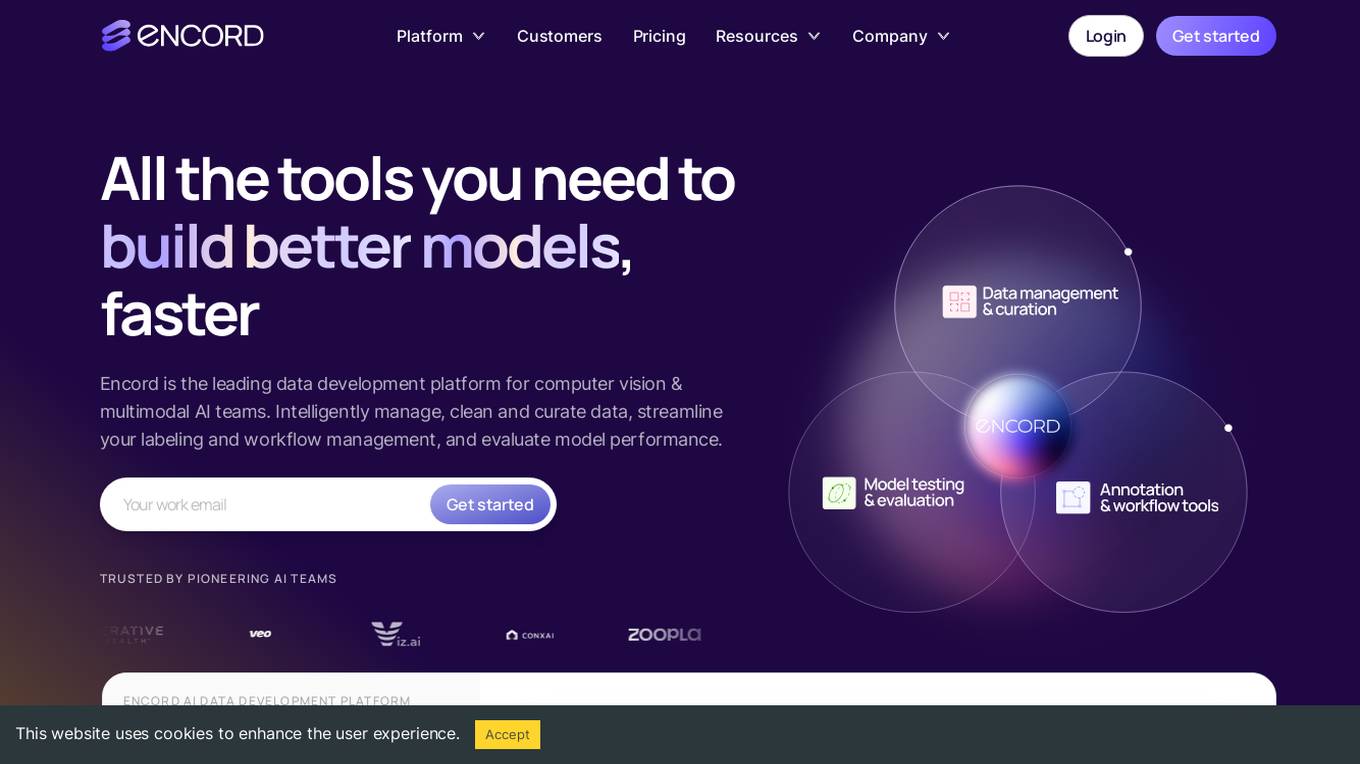
Encord
Encord is a complete data development platform designed for AI applications, specifically tailored for computer vision and multimodal AI teams. It offers tools to intelligently manage, clean, and curate data, streamline labeling and workflow management, and evaluate model performance. Encord aims to unlock the potential of AI for organizations by simplifying data-centric AI pipelines, enabling the building of better models and deploying high-quality production AI faster.

Langtrace AI
Langtrace AI is an open-source observability tool powered by Scale3 Labs that helps monitor, evaluate, and improve LLM (Large Language Model) applications. It collects and analyzes traces and metrics to provide insights into the ML pipeline, ensuring security through SOC 2 Type II certification. Langtrace supports popular LLMs, frameworks, and vector databases, offering end-to-end observability and the ability to build and deploy AI applications with confidence.
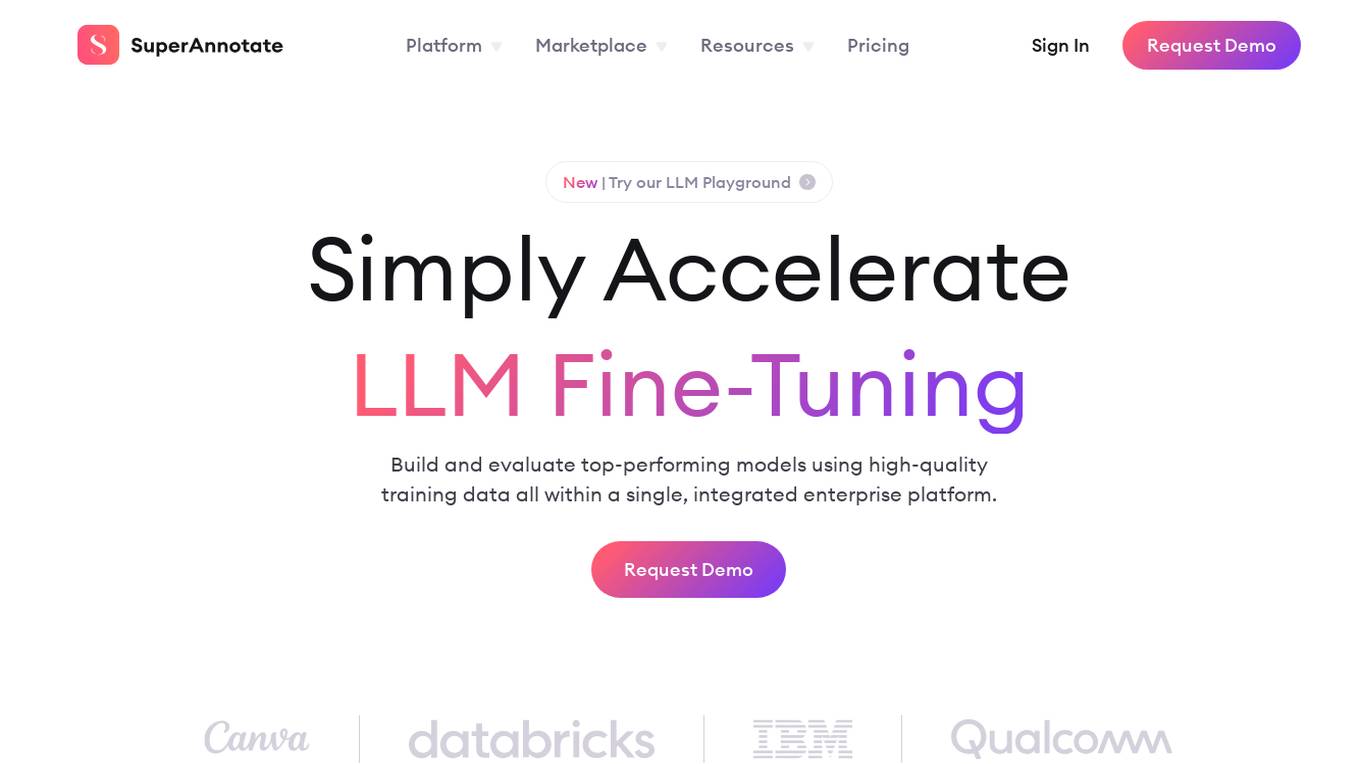
SuperAnnotate
SuperAnnotate is an AI data platform that simplifies and accelerates model-building by unifying the AI pipeline. It enables users to create, curate, and evaluate datasets efficiently, leading to the development of better models faster. The platform offers features like connecting any data source, building customizable UIs, creating high-quality datasets, evaluating models, and deploying models seamlessly. SuperAnnotate ensures global security and privacy measures for data protection.
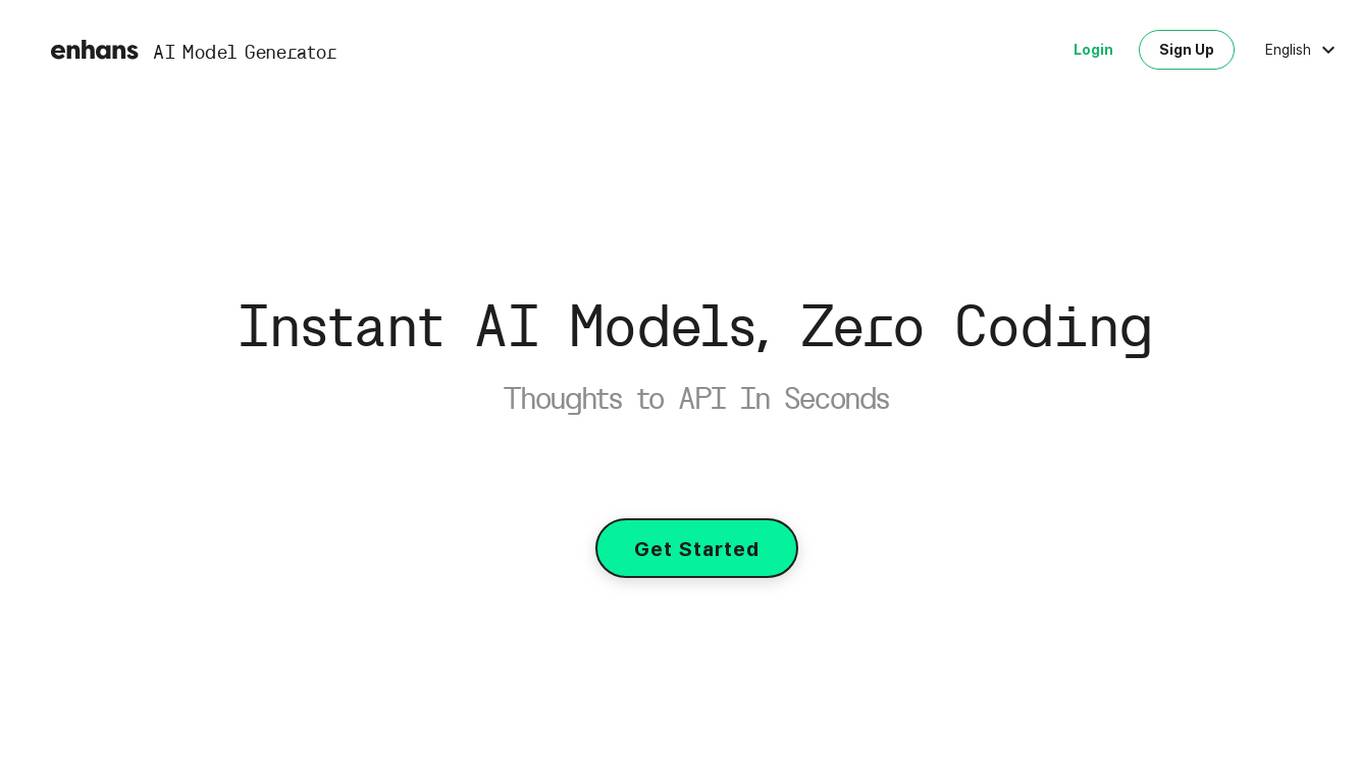
Enhans AI Model Generator
Enhans AI Model Generator is an advanced AI tool designed to help users generate AI models efficiently. It utilizes cutting-edge algorithms and machine learning techniques to streamline the model creation process. With Enhans AI Model Generator, users can easily input their data, select the desired parameters, and obtain a customized AI model tailored to their specific needs. The tool is user-friendly and does not require extensive programming knowledge, making it accessible to a wide range of users, from beginners to experts in the field of AI.
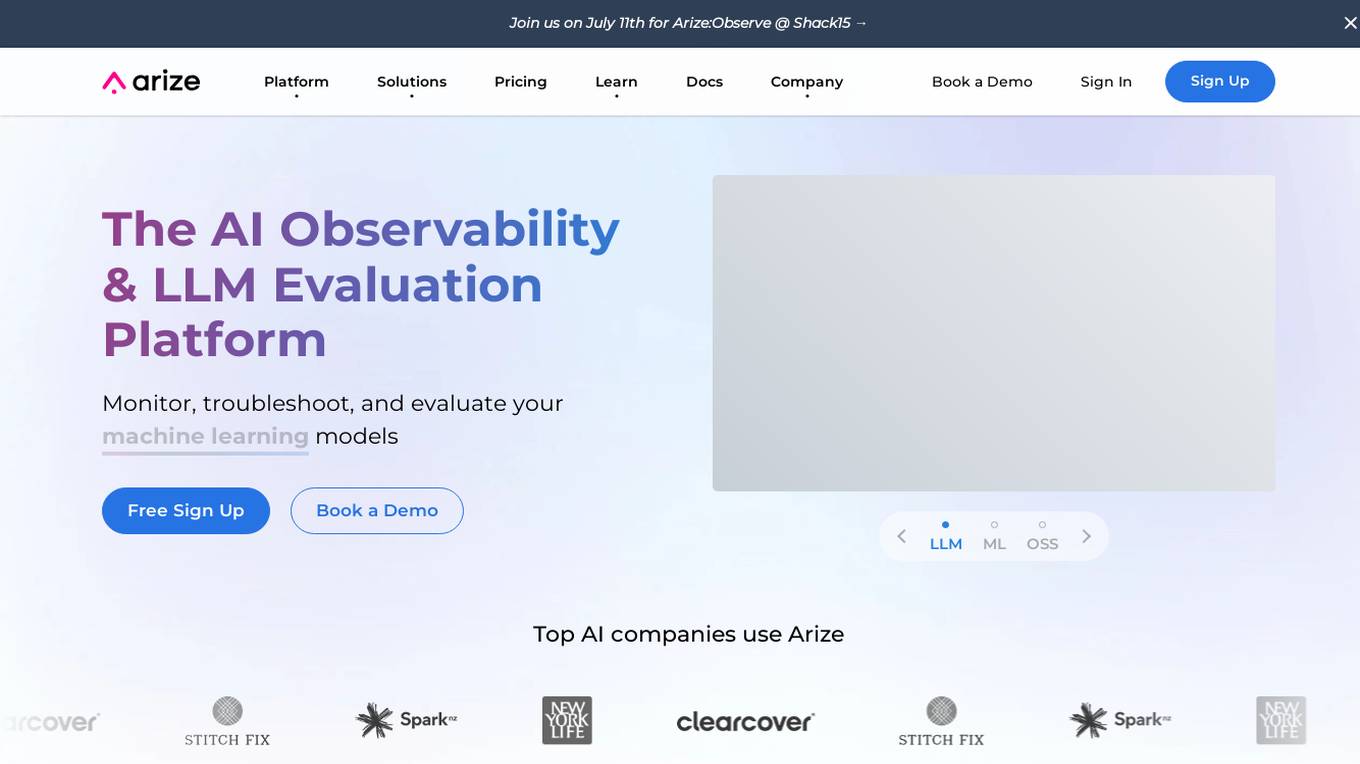
Arize AI
Arize AI is an AI Observability & LLM Evaluation Platform that helps you monitor, troubleshoot, and evaluate your machine learning models. With Arize, you can catch model issues, troubleshoot root causes, and continuously improve performance. Arize is used by top AI companies to surface, resolve, and improve their models.
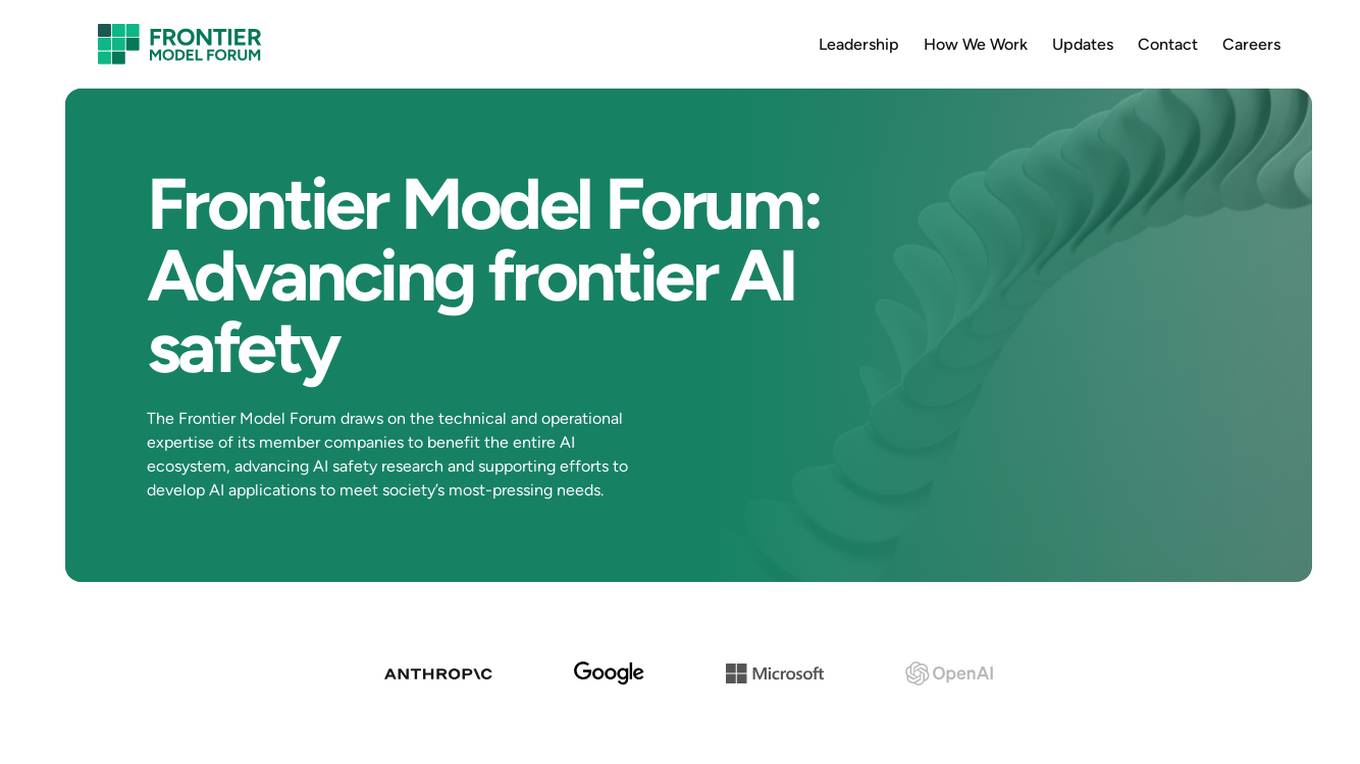
Frontier Model Forum
The Frontier Model Forum (FMF) is a collaborative effort among leading AI companies to advance AI safety and responsibility. The FMF brings together technical and operational expertise to identify best practices, conduct research, and support the development of AI applications that meet society's most pressing needs. The FMF's core objectives include advancing AI safety research, identifying best practices, collaborating across sectors, and helping AI meet society's greatest challenges.
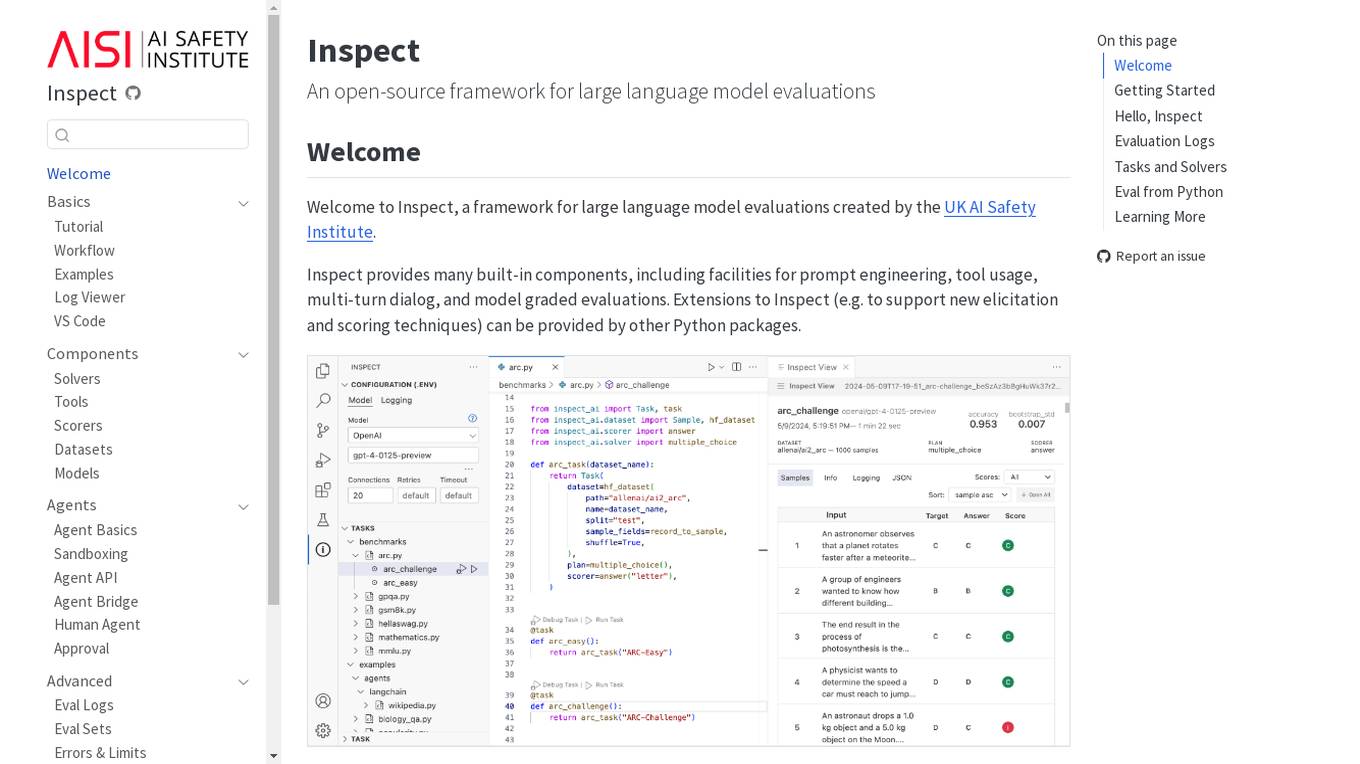
Inspect
Inspect is an open-source framework for large language model evaluations created by the UK AI Safety Institute. It provides built-in components for prompt engineering, tool usage, multi-turn dialog, and model graded evaluations. Users can explore various solvers, tools, scorers, datasets, and models to create advanced evaluations. Inspect supports extensions for new elicitation and scoring techniques through Python packages.

BenchLLM
BenchLLM is an AI tool designed for AI engineers to evaluate LLM-powered apps by running and evaluating models with a powerful CLI. It allows users to build test suites, choose evaluation strategies, and generate quality reports. The tool supports OpenAI, Langchain, and other APIs out of the box, offering automation, visualization of reports, and monitoring of model performance.
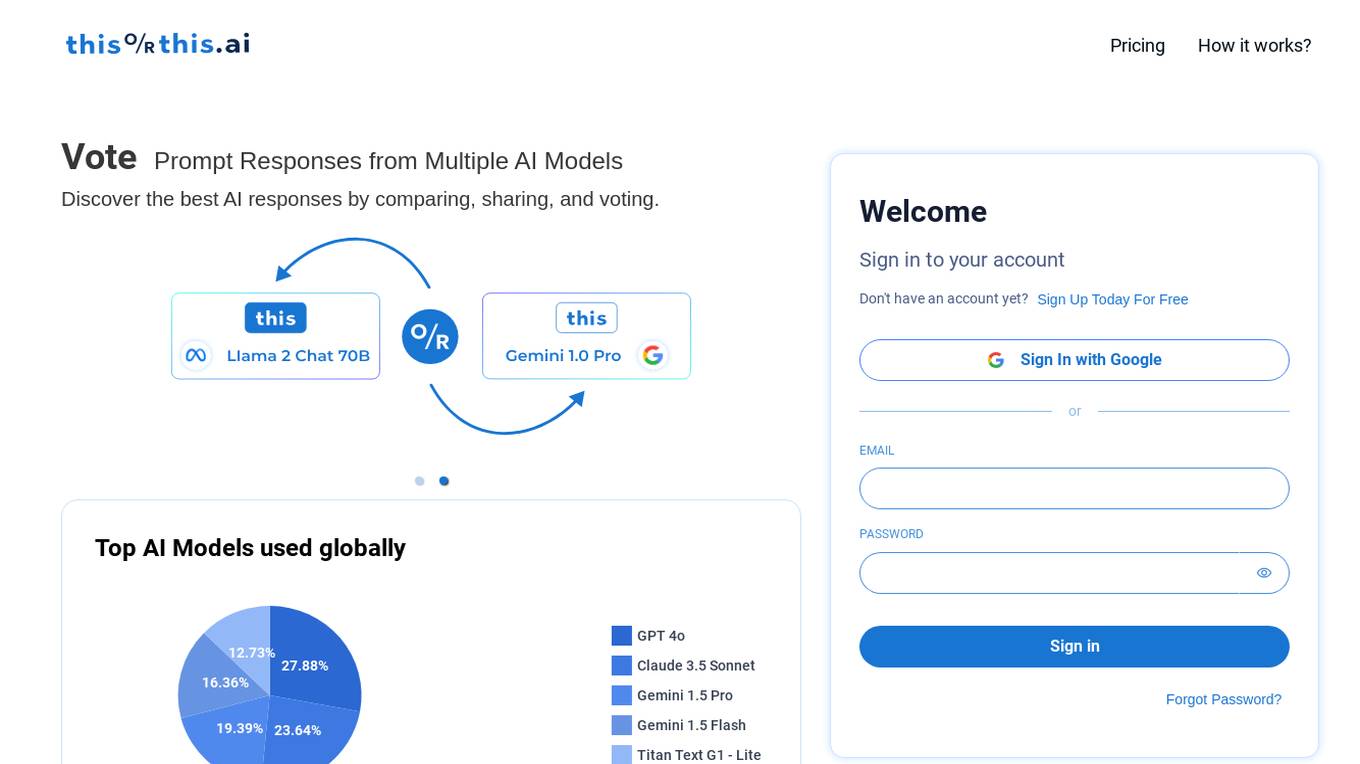
thisorthis.ai
thisorthis.ai is an AI tool that allows users to compare generative AI models and AI model responses. It helps users analyze and evaluate different AI models to make informed decisions. The tool requires JavaScript to be enabled for optimal functionality.

Inedit
Inedit is an AI-powered editor widget that enhances webpage content editing instantly. It offers features like AI technology, manual editing, effortless editing of multiple elements, and the ability to inspect deeper structures of webpages. The tool is powered by OpenAI GPT Models, providing unparalleled flexibility and performance. Users can seamlessly edit, evaluate, and publish content, ensuring only approved content reaches the audience.
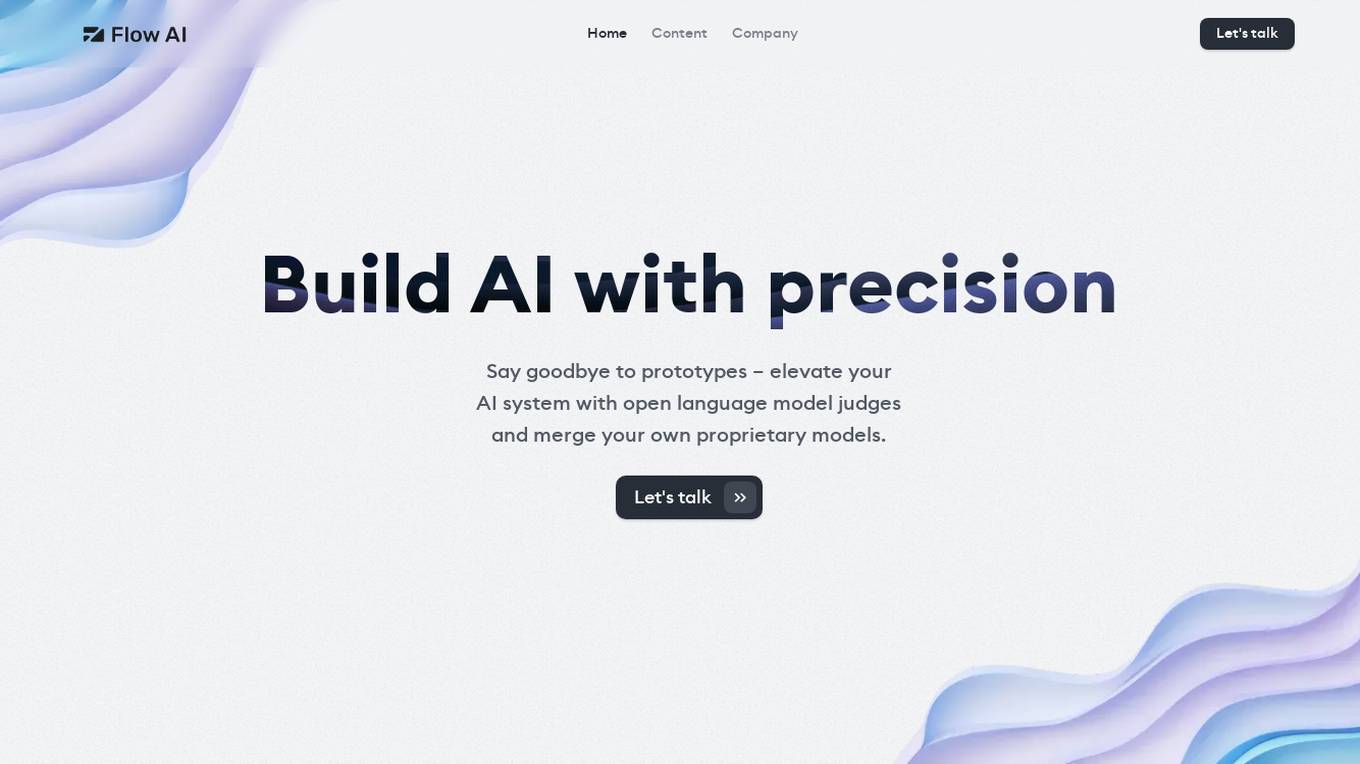
Flow AI
Flow AI is an advanced AI tool designed for evaluating and improving Large Language Model (LLM) applications. It offers a unique system for creating custom evaluators, deploying them with an API, and developing specialized LMs tailored to specific use cases. The tool aims to revolutionize AI evaluation and model development by providing transparent, cost-effective, and controllable solutions for AI teams across various domains.

Evidently AI
Evidently AI is an open-source machine learning (ML) monitoring and observability platform that helps data scientists and ML engineers evaluate, test, and monitor ML models from validation to production. It provides a centralized hub for ML in production, including data quality monitoring, data drift monitoring, ML model performance monitoring, and NLP and LLM monitoring. Evidently AI's features include customizable reports, structured checks for data and models, and a Python library for ML monitoring. It is designed to be easy to use, with a simple setup process and a user-friendly interface. Evidently AI is used by over 2,500 data scientists and ML engineers worldwide, and it has been featured in publications such as Forbes, VentureBeat, and TechCrunch.
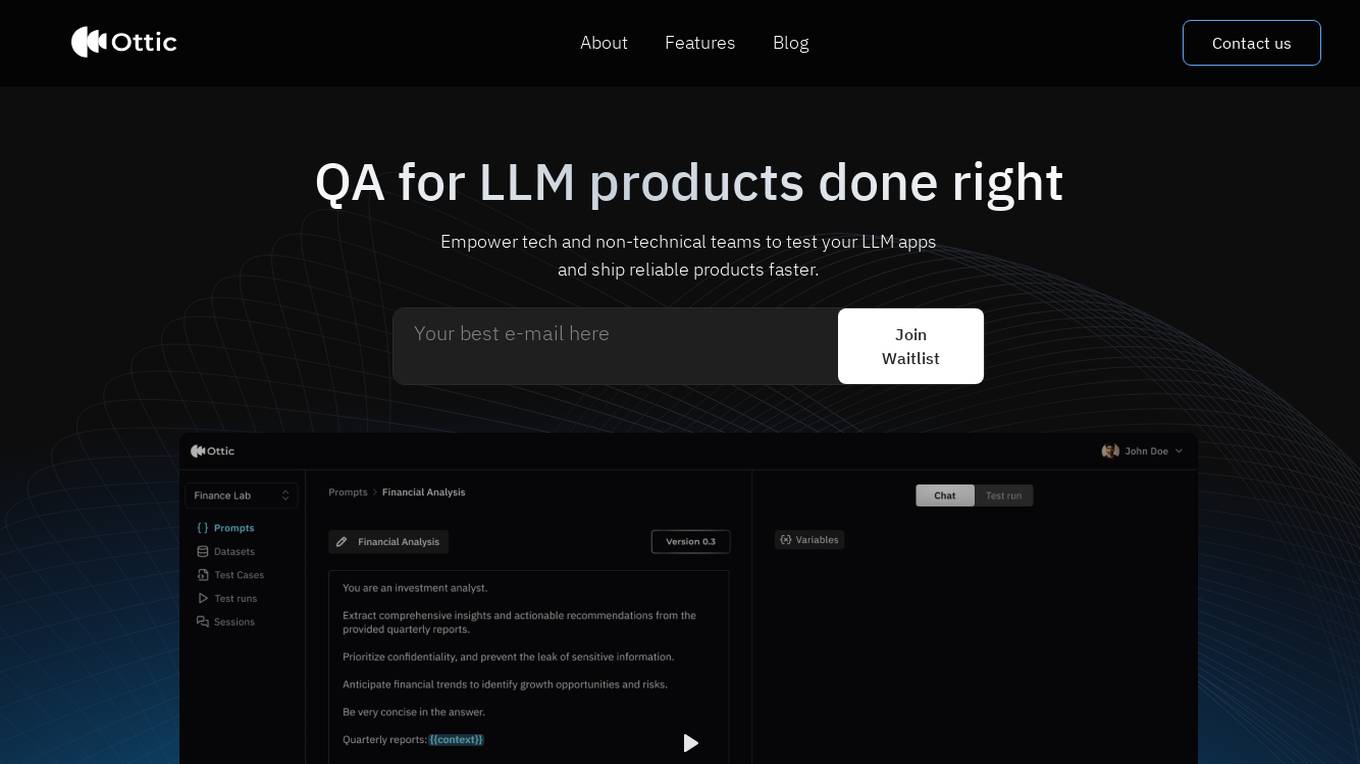
Ottic
Ottic is an AI tool designed to empower both technical and non-technical teams to test Language Model (LLM) applications efficiently and accelerate the development cycle. It offers features such as a 360º view of the QA process, end-to-end test management, comprehensive LLM evaluation, and real-time monitoring of user behavior. Ottic aims to bridge the gap between technical and non-technical team members, ensuring seamless collaboration and reliable product delivery.
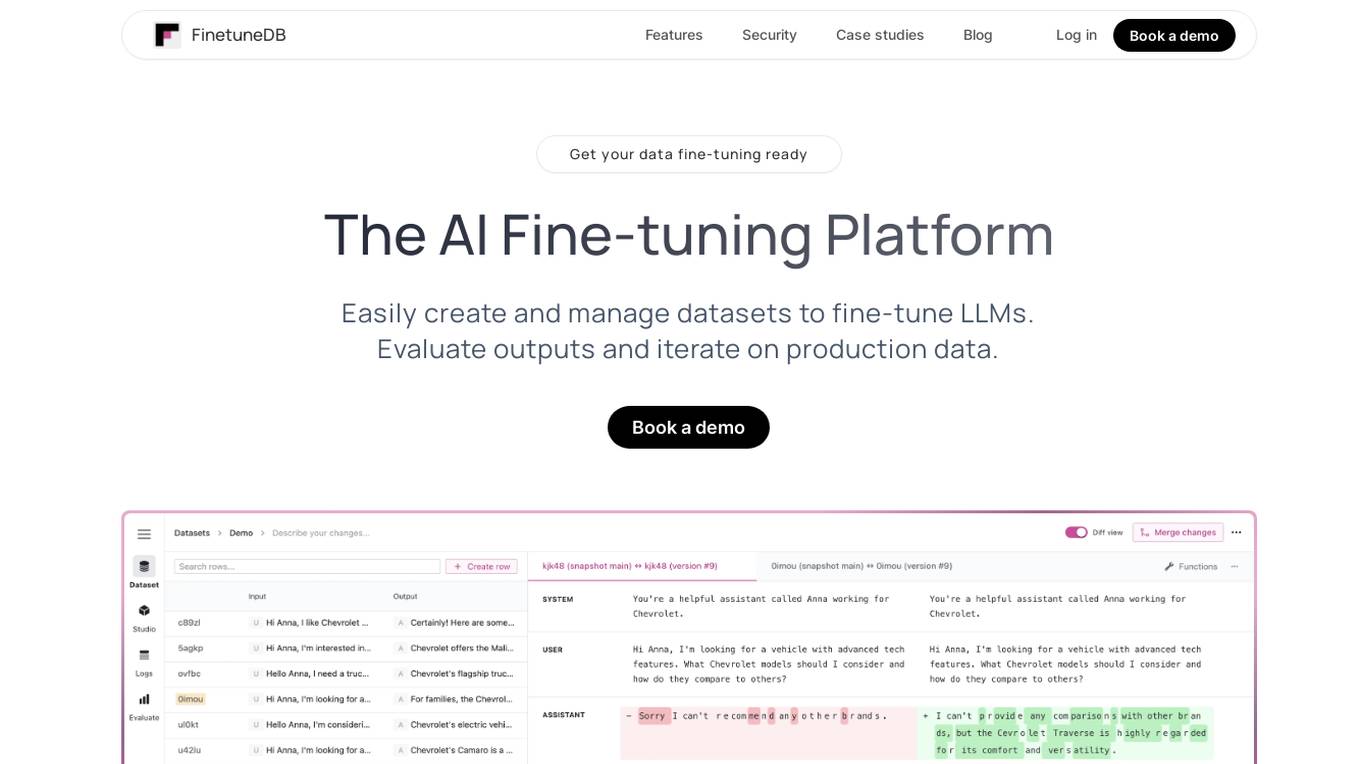
FinetuneDB
FinetuneDB is an AI fine-tuning platform that allows users to easily create and manage datasets to fine-tune LLMs, evaluate outputs, and iterate on production data. It integrates with open-source and proprietary foundation models, and provides a collaborative editor for building datasets. FinetuneDB also offers a variety of features for evaluating model performance, including human and AI feedback, automated evaluations, and model metrics tracking.
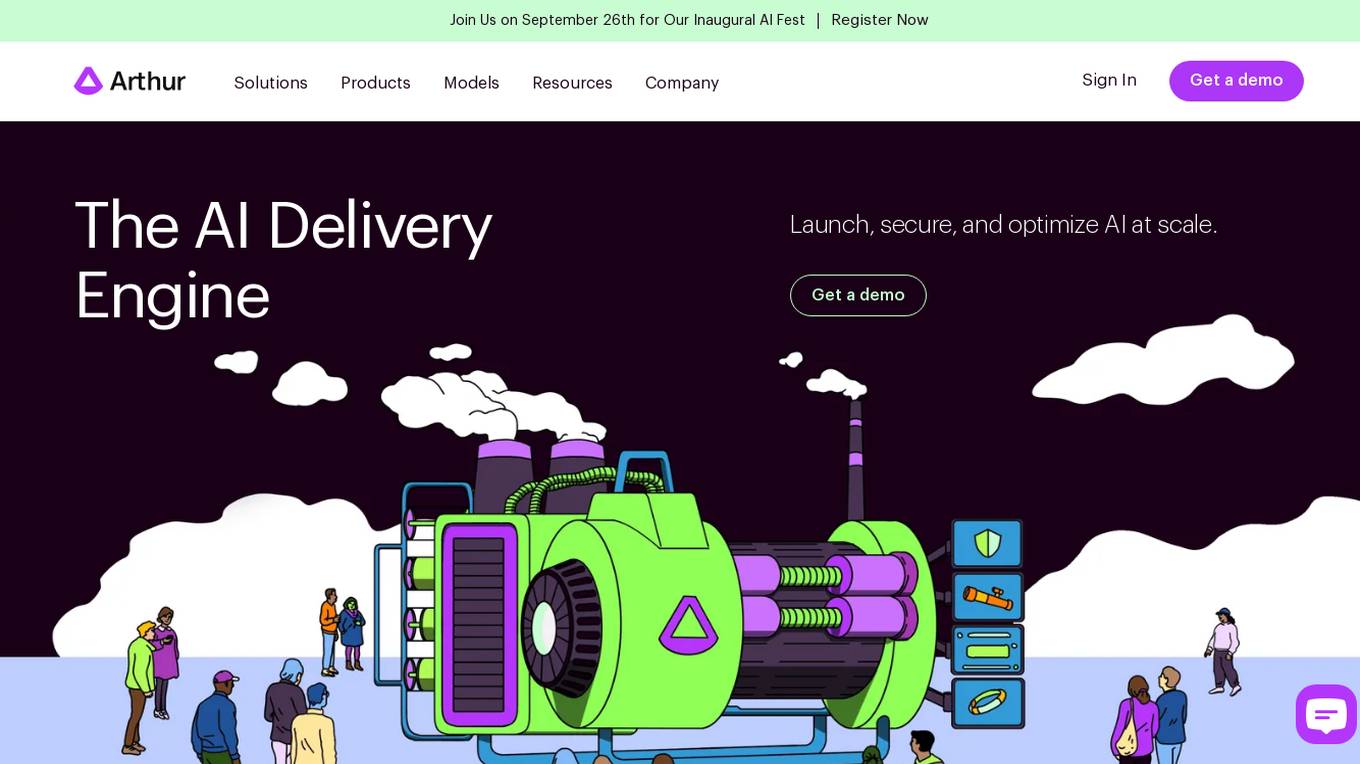
Arthur
Arthur is an industry-leading MLOps platform that simplifies deployment, monitoring, and management of traditional and generative AI models. It ensures scalability, security, compliance, and efficient enterprise use. Arthur's turnkey solutions enable companies to integrate the latest generative AI technologies into their operations, making informed, data-driven decisions. The platform offers open-source evaluation products, model-agnostic monitoring, deployment with leading data science tools, and model risk management capabilities. It emphasizes collaboration, security, and compliance with industry standards.
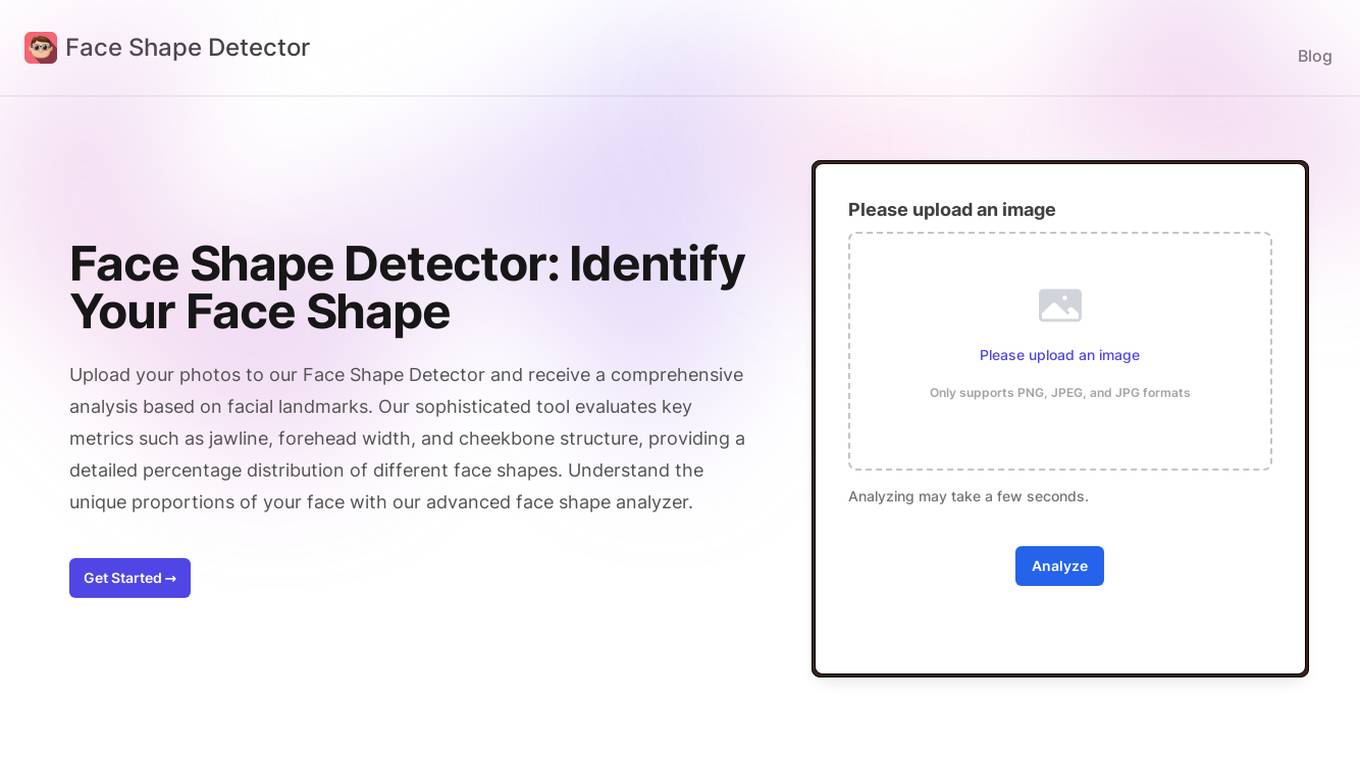
Face Shape Detector
Face Shape Detector is an advanced AI tool that analyzes facial landmarks in uploaded photos to identify the user's face shape and provide percentage distributions for different face shapes. It utilizes sophisticated algorithms to assess key metrics such as jawline, forehead width, and cheekbone structure, delivering detailed insights into facial proportions. Users can explore the power of facial analysis, understand their unique face shape, and receive quick and accurate results through this intuitive tool.
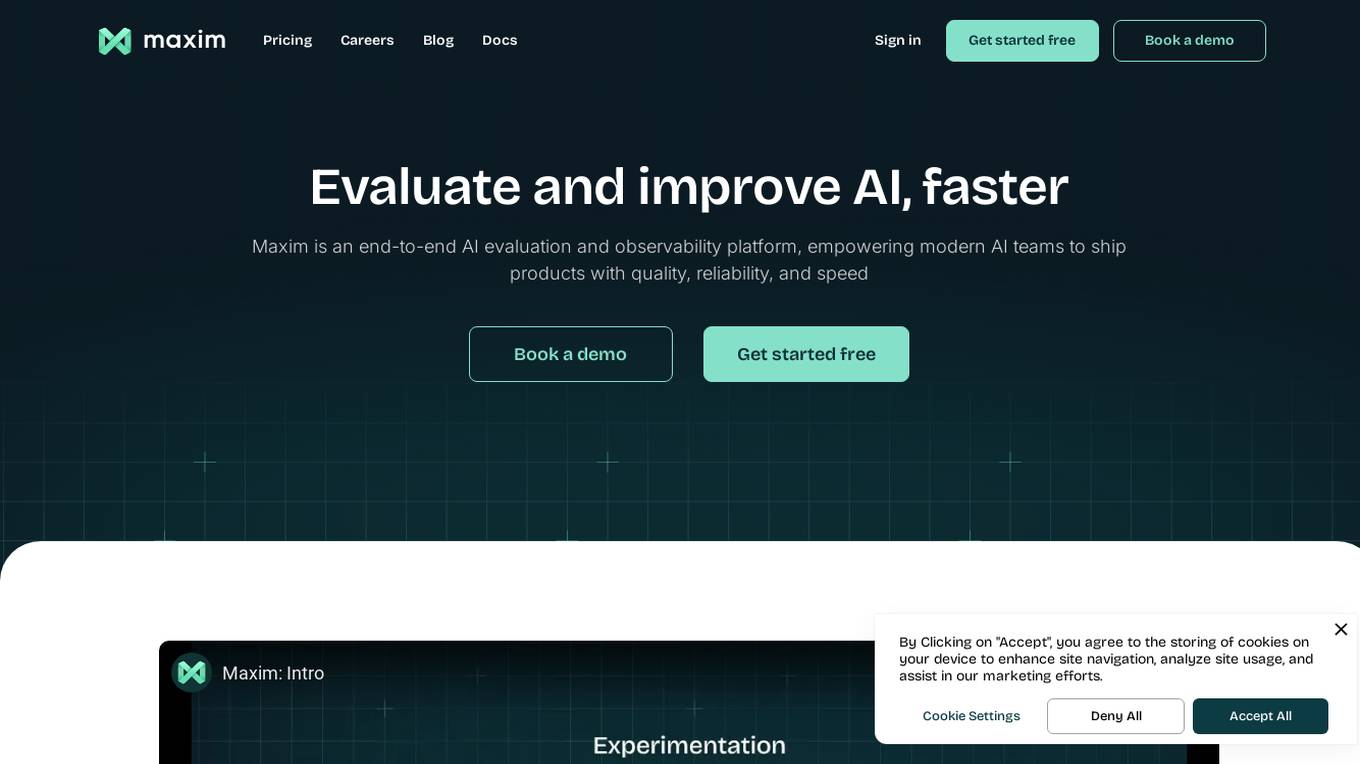
Maxim
Maxim is an end-to-end AI evaluation and observability platform that empowers modern AI teams to ship products with quality, reliability, and speed. It offers a comprehensive suite of tools for experimentation, evaluation, observability, and data management. Maxim aims to bring the best practices of traditional software development into non-deterministic AI workflows, enabling rapid iteration and deployment of AI models. The platform caters to the needs of AI developers, data scientists, and machine learning engineers by providing a unified framework for evaluation, visual flows for workflow testing, and observability features for monitoring and optimizing AI systems in real-time.
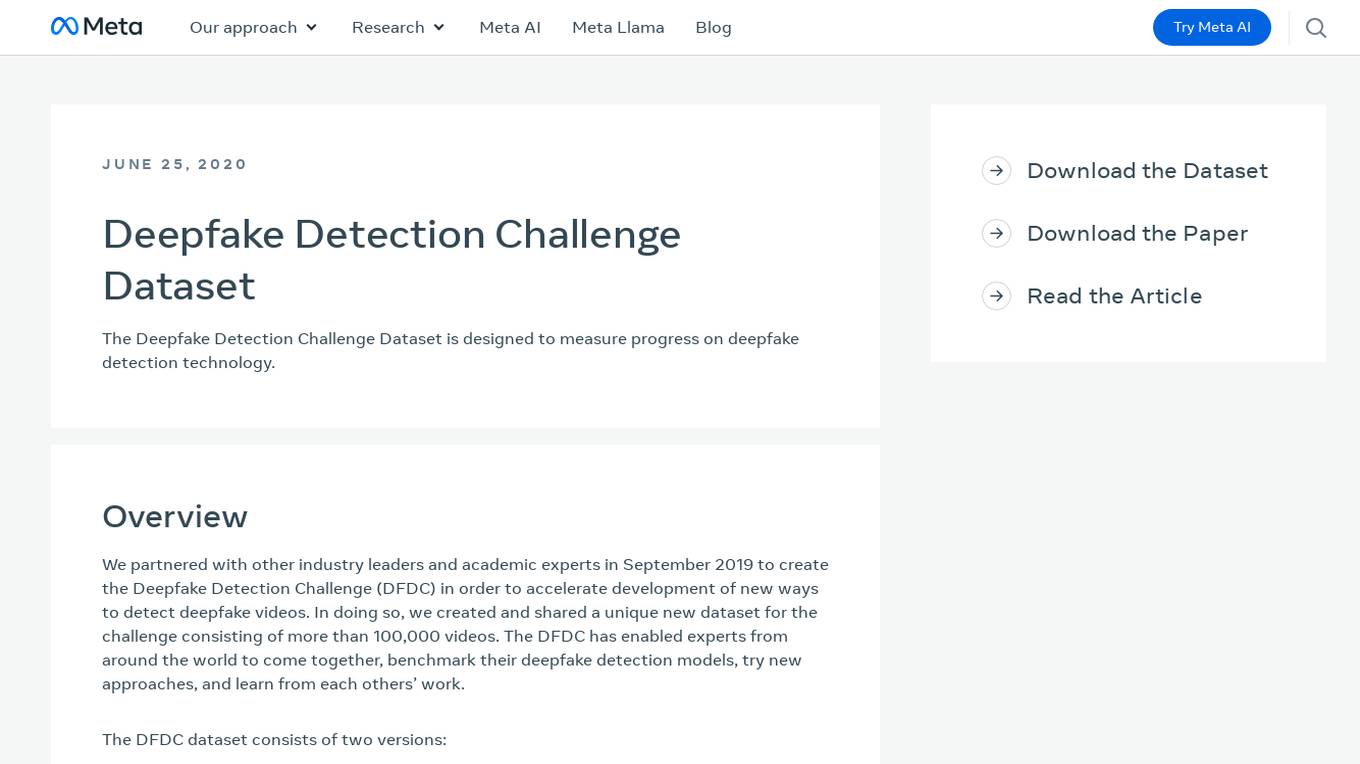
Deepfake Detection Challenge Dataset
The Deepfake Detection Challenge Dataset is a project initiated by Facebook AI to accelerate the development of new ways to detect deepfake videos. The dataset consists of over 100,000 videos and was created in collaboration with industry leaders and academic experts. It includes two versions: a preview dataset with 5k videos and a full dataset with 124k videos, each featuring facial modification algorithms. The dataset was used in a Kaggle competition to create better models for detecting manipulated media. The top-performing models achieved high accuracy on the public dataset but faced challenges when tested against the black box dataset, highlighting the importance of generalization in deepfake detection. The project aims to encourage the research community to continue advancing in detecting harmful manipulated media.
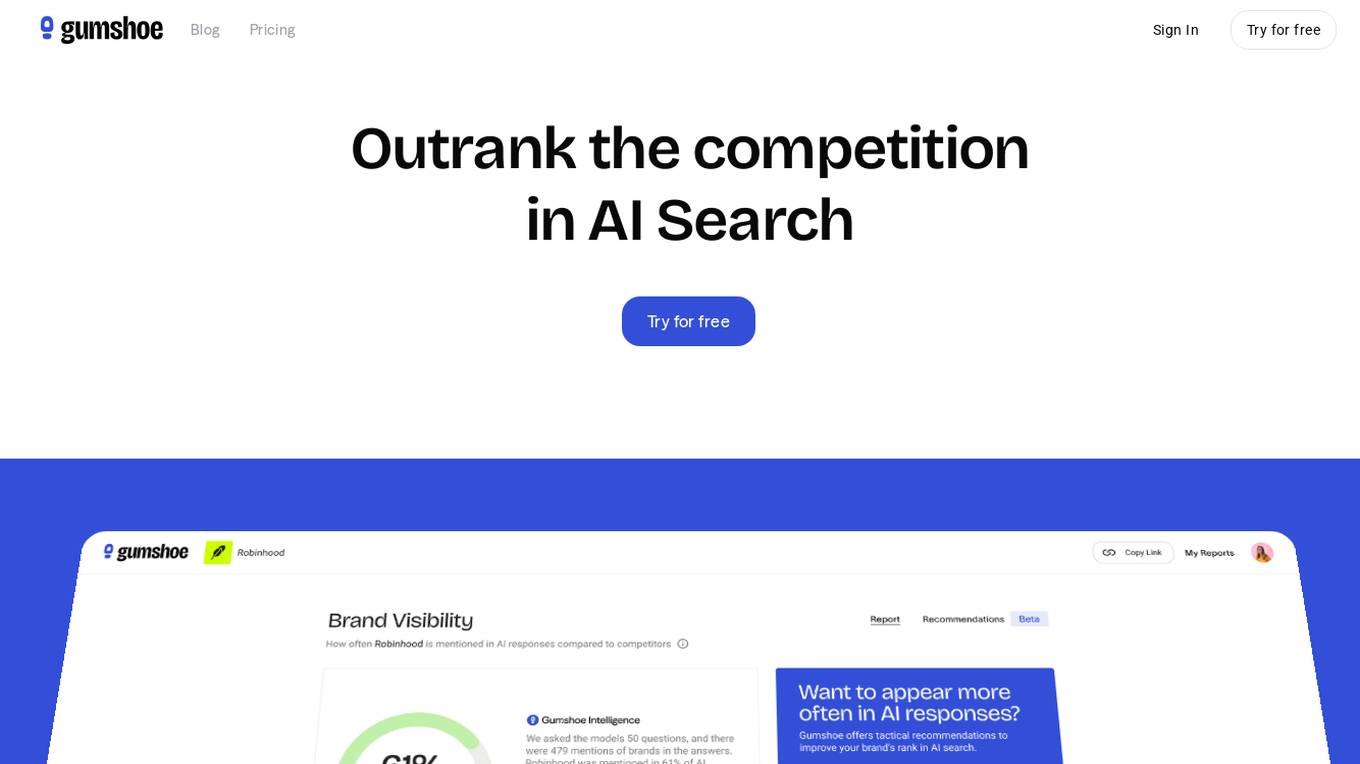
Gumshoe AI
Gumshoe AI is an AI tool designed to help users outrank the competition in AI search. It provides insights into brand visibility, competitive rank, persona visibility, topic visibility, model visibility, and cited sources. The platform offers simple pricing that scales with the user's needs, with features such as AI-assisted content generation, optimization recommendations, and access to the latest features.
3 - Open Source AI Tools
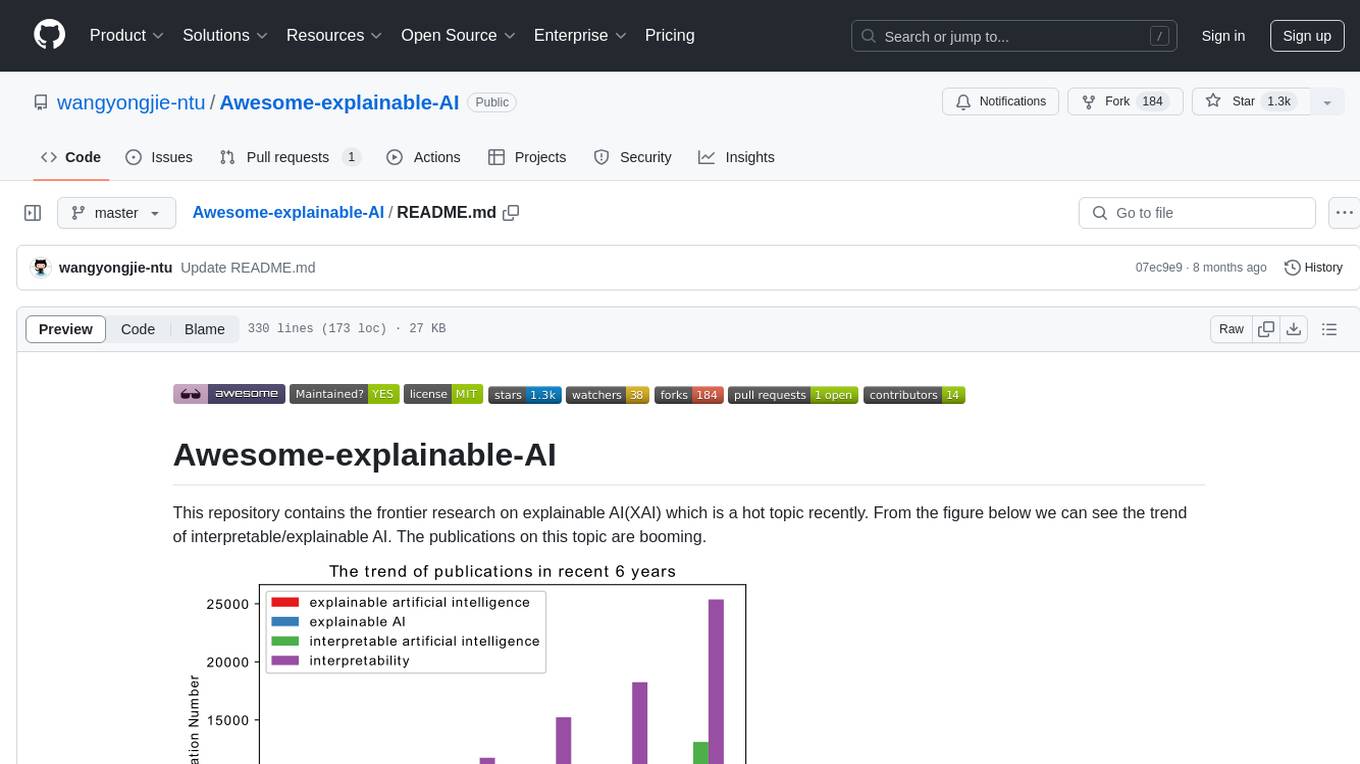
Awesome-explainable-AI
This repository contains frontier research on explainable AI (XAI), a hot topic in the field of artificial intelligence. It includes trends, use cases, survey papers, books, open courses, papers, and Python libraries related to XAI. The repository aims to organize and categorize publications on XAI, provide evaluation methods, and list various Python libraries for explainable AI.
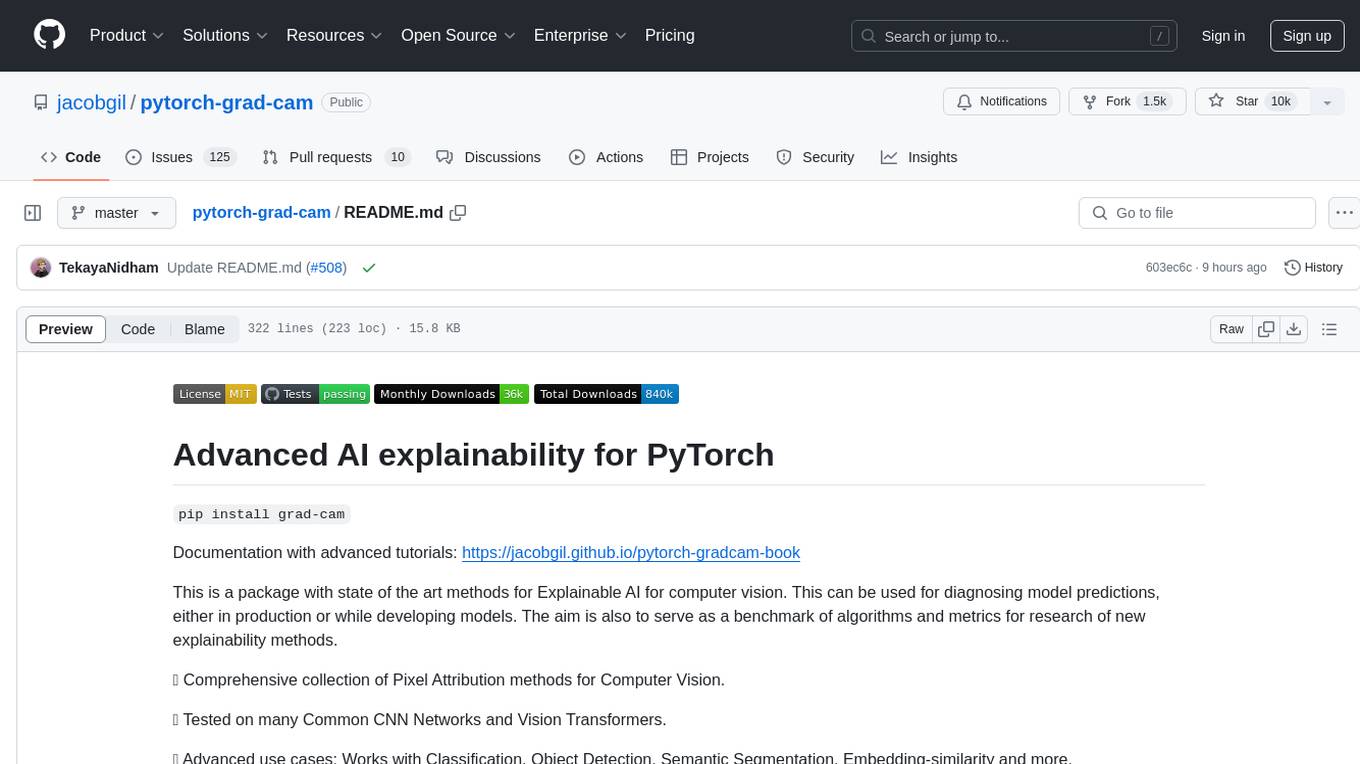
pytorch-grad-cam
This repository provides advanced AI explainability for PyTorch, offering state-of-the-art methods for Explainable AI in computer vision. It includes a comprehensive collection of Pixel Attribution methods for various tasks like Classification, Object Detection, Semantic Segmentation, and more. The package supports high performance with full batch image support and includes metrics for evaluating and tuning explanations. Users can visualize and interpret model predictions, making it suitable for both production and model development scenarios.
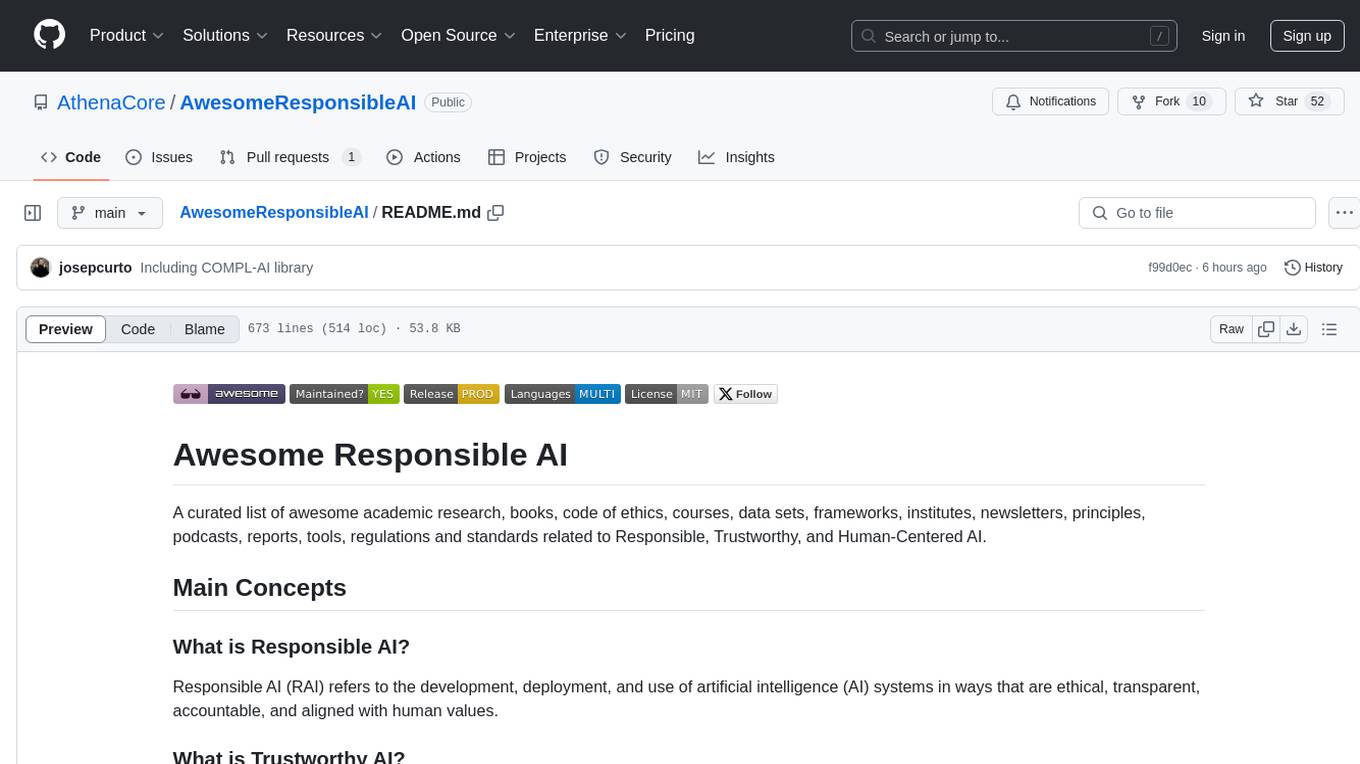
AwesomeResponsibleAI
Awesome Responsible AI is a curated list of academic research, books, code of ethics, courses, data sets, frameworks, institutes, newsletters, principles, podcasts, reports, tools, regulations, and standards related to Responsible, Trustworthy, and Human-Centered AI. It covers various concepts such as Responsible AI, Trustworthy AI, Human-Centered AI, Responsible AI frameworks, AI Governance, and more. The repository provides a comprehensive collection of resources for individuals interested in ethical, transparent, and accountable AI development and deployment.
20 - OpenAI Gpts

Business Model Canvas Strategist
Business Model Canvas Creator - Build and evaluate your business model
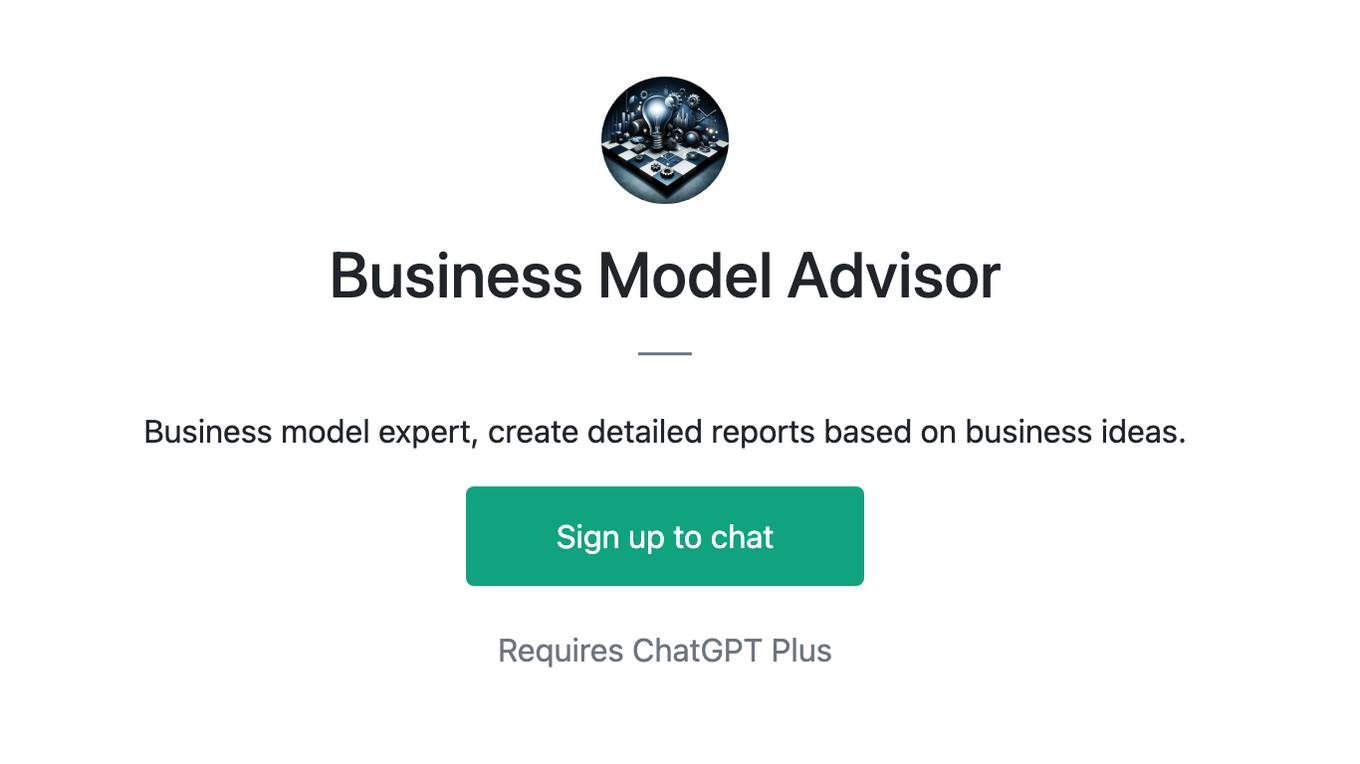
Business Model Advisor
Business model expert, create detailed reports based on business ideas.
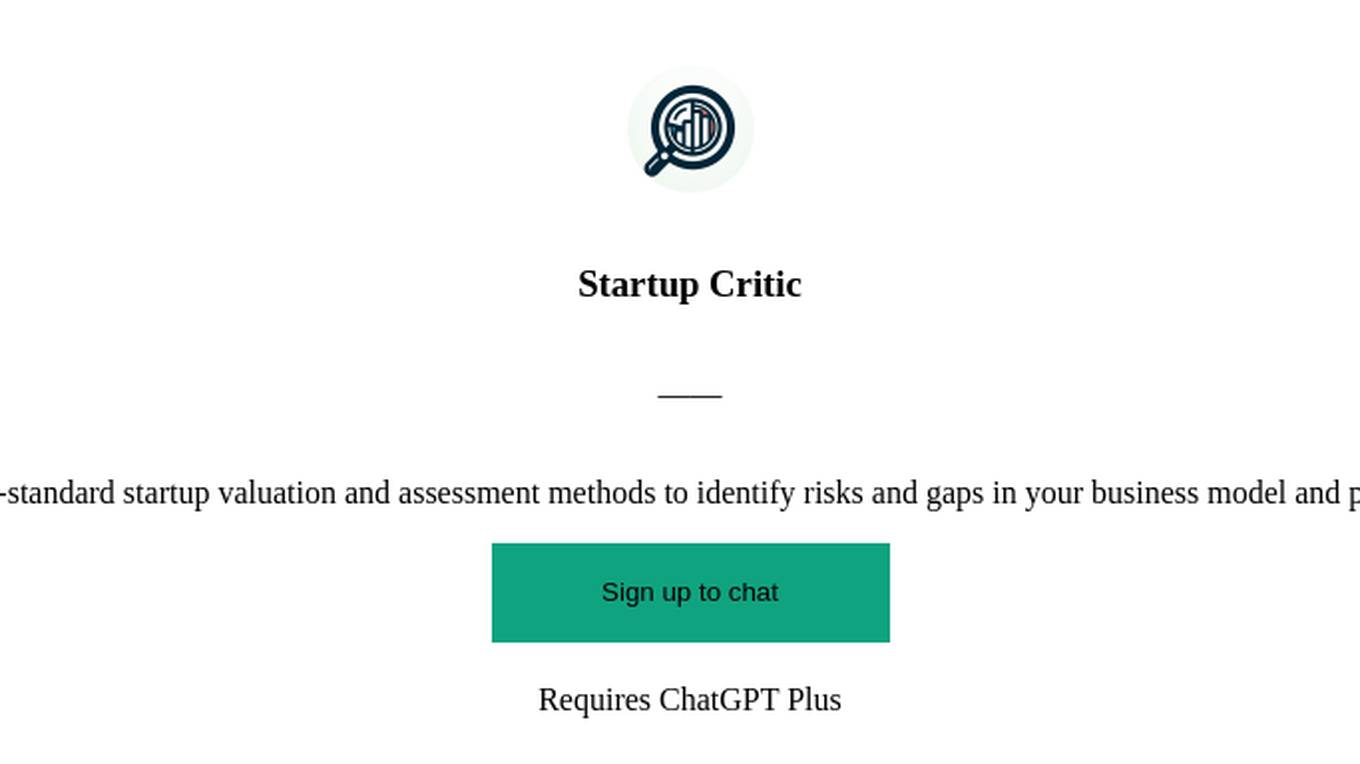
Startup Critic
Apply gold-standard startup valuation and assessment methods to identify risks and gaps in your business model and product ideas.
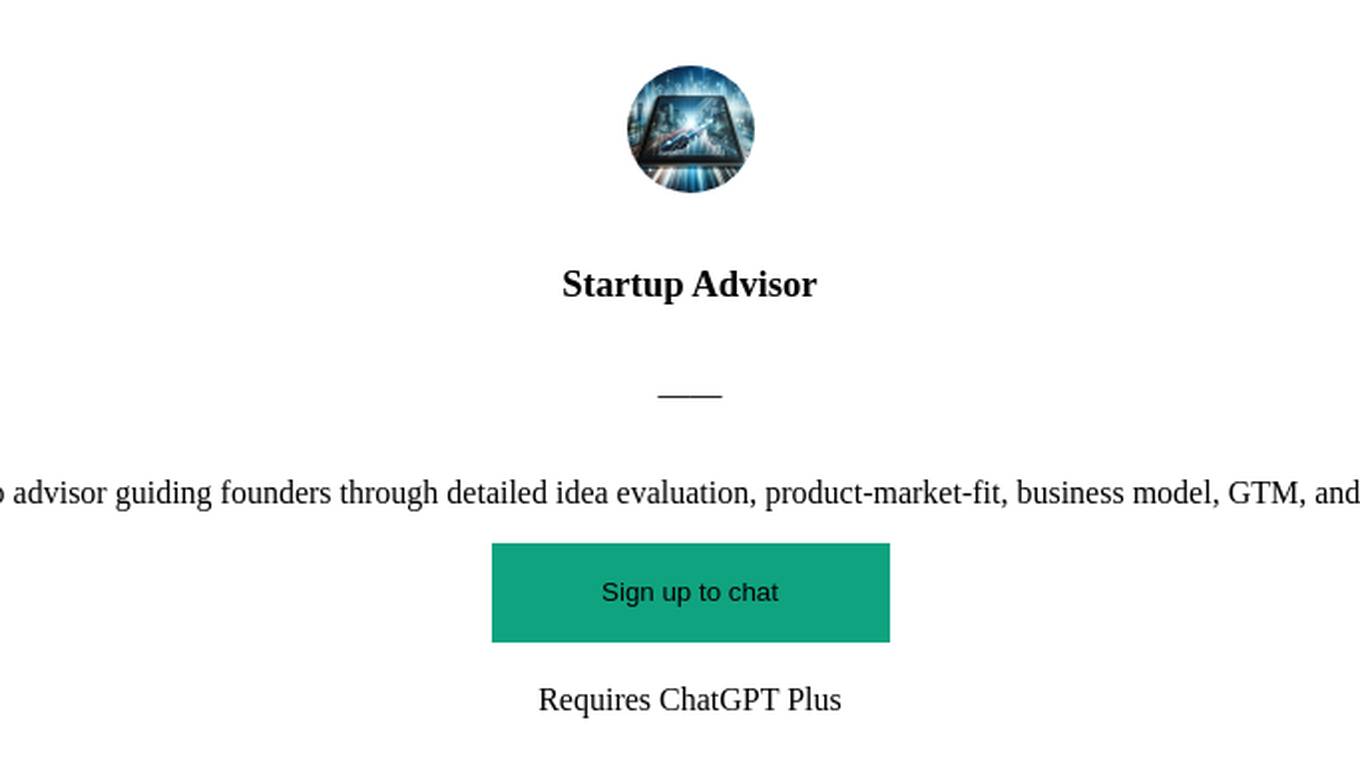
Startup Advisor
Startup advisor guiding founders through detailed idea evaluation, product-market-fit, business model, GTM, and scaling.
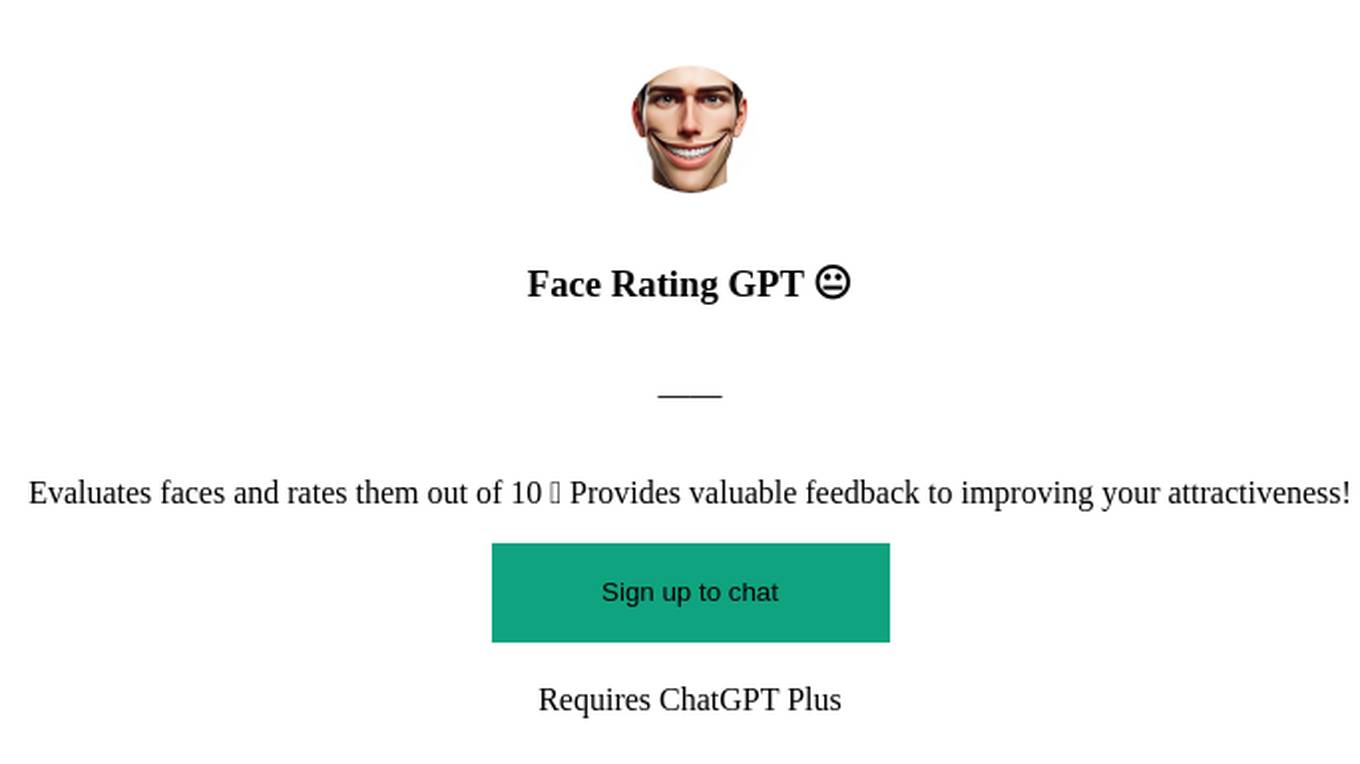
Face Rating GPT 😐
Evaluates faces and rates them out of 10 ⭐ Provides valuable feedback to improving your attractiveness!

Instructor GCP ML
Formador para la certificación de ML Engineer en GCP, con respuestas y explicaciones detalladas.
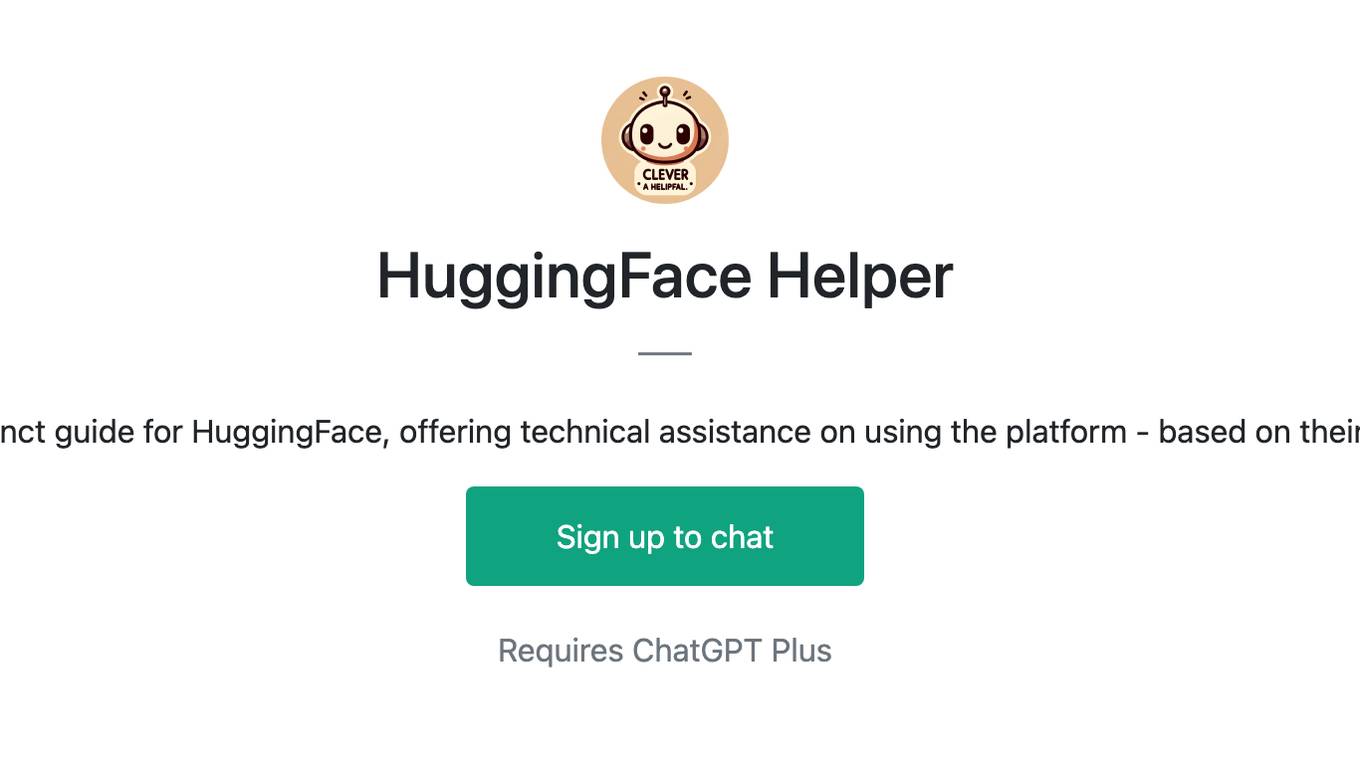
HuggingFace Helper
A witty yet succinct guide for HuggingFace, offering technical assistance on using the platform - based on their Learning Hub
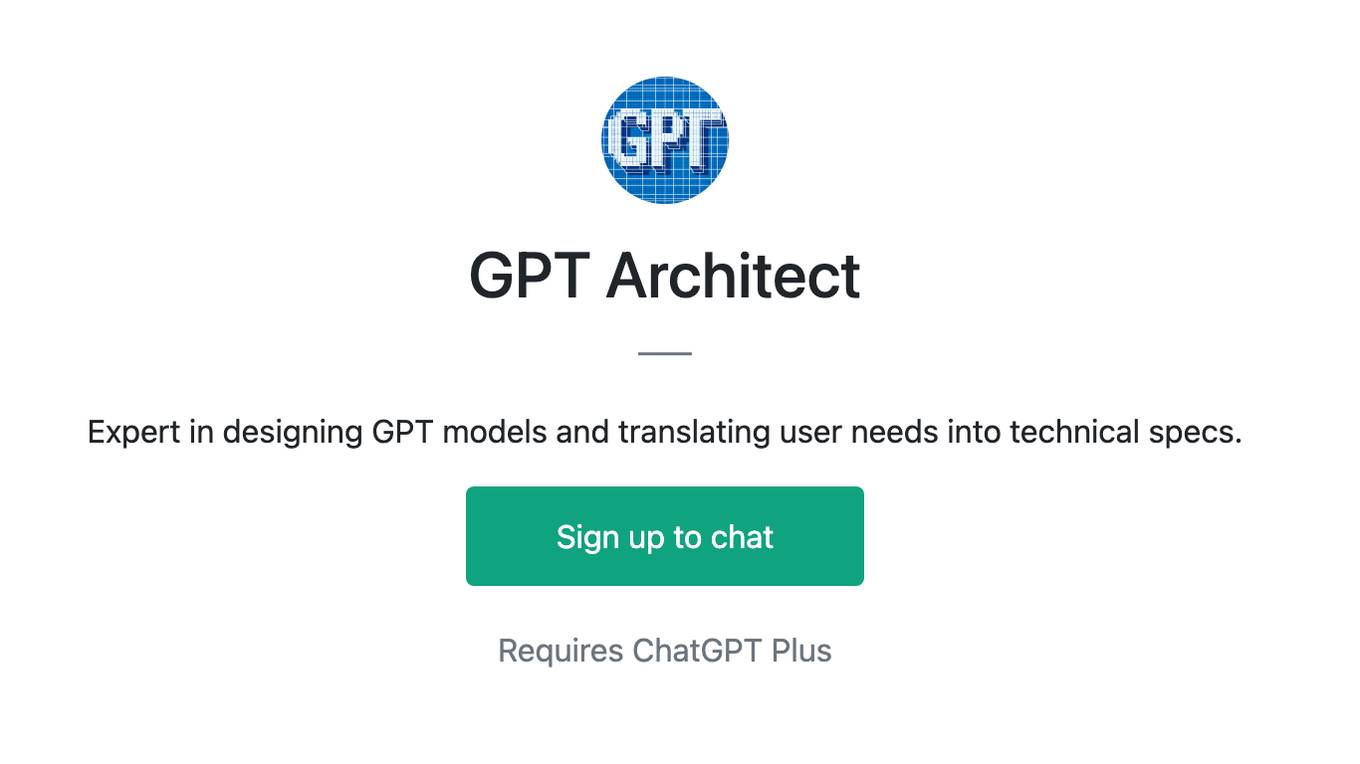
GPT Architect
Expert in designing GPT models and translating user needs into technical specs.
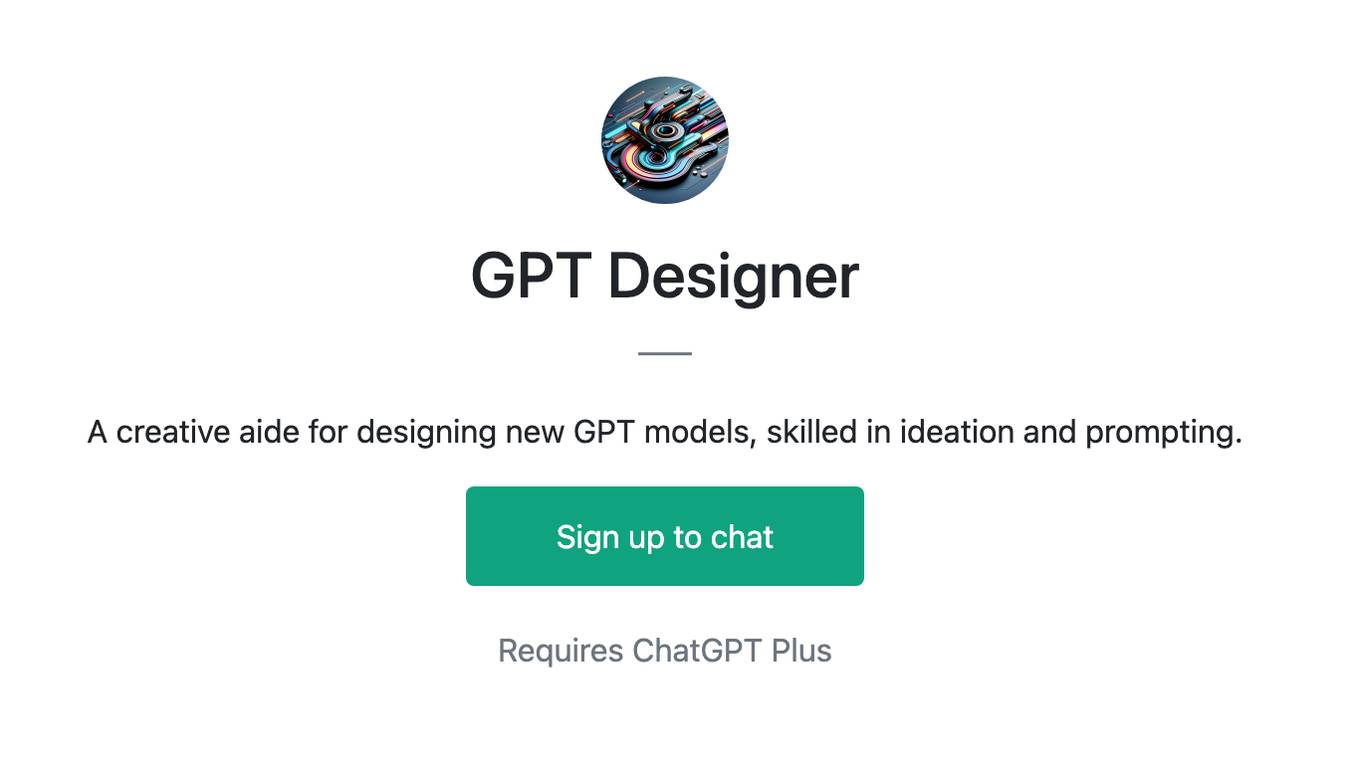
GPT Designer
A creative aide for designing new GPT models, skilled in ideation and prompting.

Pytorch Trainer GPT
Your purpose is to create the pytorch code to train language models using pytorch

